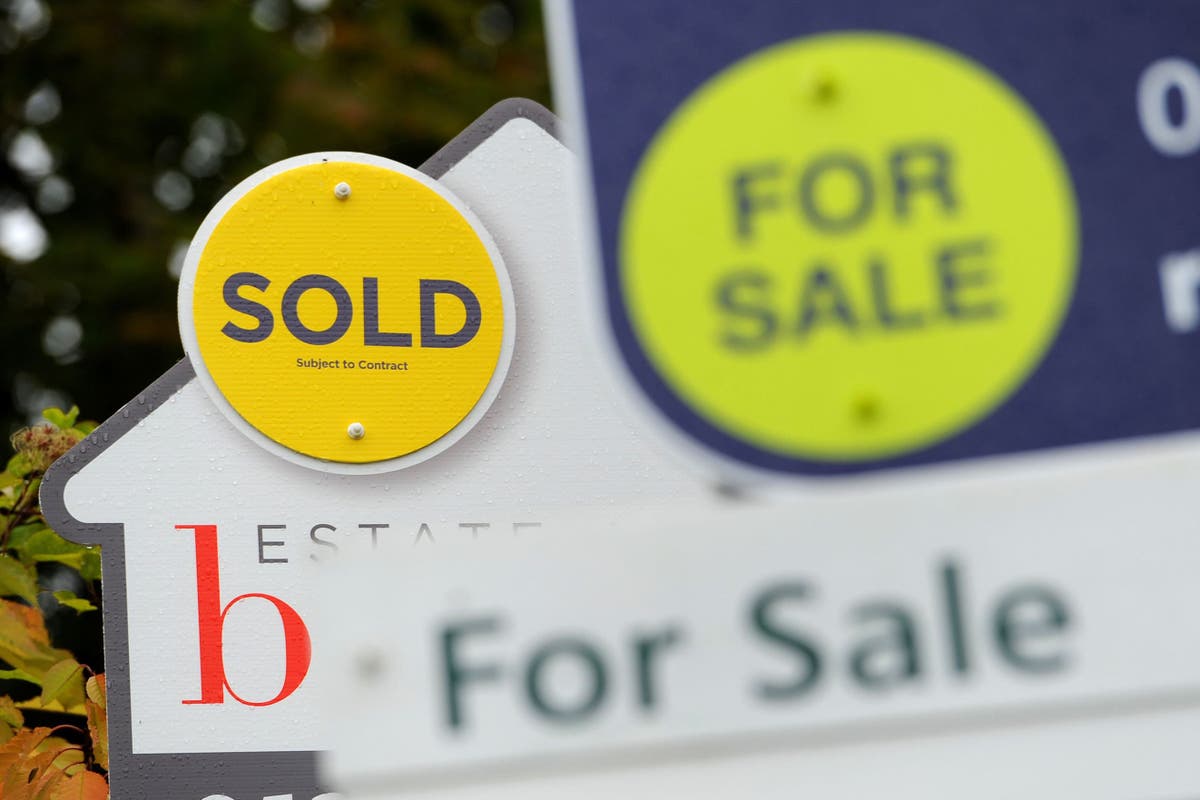Fixed-rate mortgages have risen to their highest level since the torrid aftermath of Liz Truss’ mini-Budget fiasco in the autumn, as homeowners were warned of “intense pain” ahead.
The Bank of England last week raised the base rate to a 15-year high of 5 per cent in a shock move that piled pressure on mortgage payers.
The average two-year fixed mortgage rate has risen to 6.23 per cent, up from 6.19 per cent on Friday, according to Moneyfacts. The average 5-year fixed rate is now to 5.86 per cent, up from 5.83 per cent.
It marks the highest rates since November, when the Truss government’s attempt to push through unfunded tax cuts and spooked the markets – pushing up mortgage costs.
It comes as it emerged that Britain are paying thousands of pounds more than Europeans for new mortgages as interest rates soar.
New analysis by Labour suggests that even before the latest hike, new mortgages cost a typical household over £2,000 more per year than in France.
For a £200,000 loan paid back over 25 years, annual UK mortgage payments are around £1,100 higher than in Belgium and Ireland, and about £800 more than in Germany and the Netherlands, the party said.
The analysis is based on Bank of England data which shows that effective interest rates on new mortgages in April were on average 4.46%.
European Central Bank figures show that equivalent interest rates were on average 2.91% in France, 3.61% in Belgium, and 3.89% in Germany.
Chancellor Jeremy Hunt has agreed deal with banks to offer more flexibility
(PA Wire)
Chancellor Jeremy Hunt last week agreed measures with banks aimed at cooling the mortgage crisis, including giving people struggling with repayments a 12-month grace period before repossessions begin.
In moves aimed at boosting flexibility, mortgage holders will be able to extend the term of their mortgages or move to an interest-only plan temporarily “no questions asked”, in a change that echoed Labour’s demands.
But Labour has criticised the voluntary nature of the measures, saying that around two million people could miss out on support because they are not mandatory.
The opposition has been urging ministers to compel banks to be more supportive – claiming around two million households could miss out on the mortgage support they need.
Labour’s shadow chief secretary to the Treasury Pat McFadden said: “These figures lay bare the cost of the Tory mortgage penalty. Yet again the Tory government’s refusal to step up and offer proper support is forcing families into a far worse financial situation than in neighbouring countries.
He added: “The Conservative government can’t grip this problem because they are the problem. Their chaotic response to the devastating impact the Tory mortgage penalty is having shows they’re completely out of touch with the situation families are facing.”
A Tory former minister said his should be the party of homeownership which he said has “tragically” narrowed under Conservative governments.
Lord Willetts, president of the Resolution Foundation think tank, told BBC Radio 4’s Westminster Hour: “There is a group of several million people who could be seeing their mortgage costs rise by about £3,000 in a year and that is a lot for a middle-income household to bear. So it is going to be tough for them.
“Conservatives believe in the property-owning democracy. We’ve seen tragically a narrowing of homeownership over the last decades. That in turn means that if you’re trying to use interest rates, mortgage rates to drive disinflation, you’ve got a smaller group to operate on and they feel more intense pain.”
There are signs of the market calming, however. The number of residential mortgage products has risen from 4,444 on Friday to 4,483 on Monday.
The buy to let market is holding steady. The average two-year buy-to-let mortgage rate is 6.49 per cent, said Moneyfacts, the same rate as Friday.



More Stories
Etsy accused of ‘destroying’ sellers by withholding money
Key consumer protection powers come into force
BAT not about to quit London stock market, insists new chief